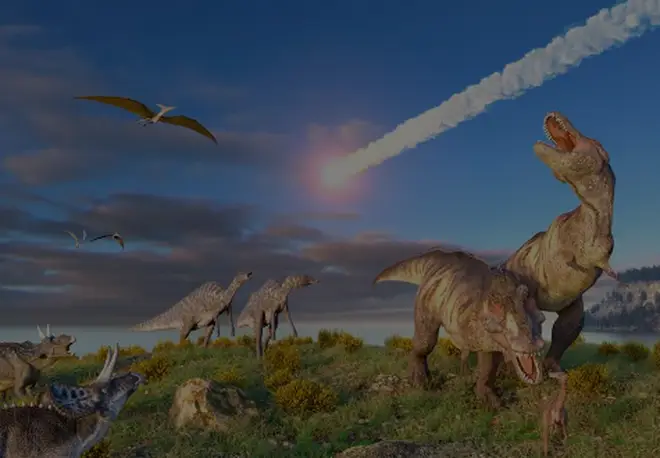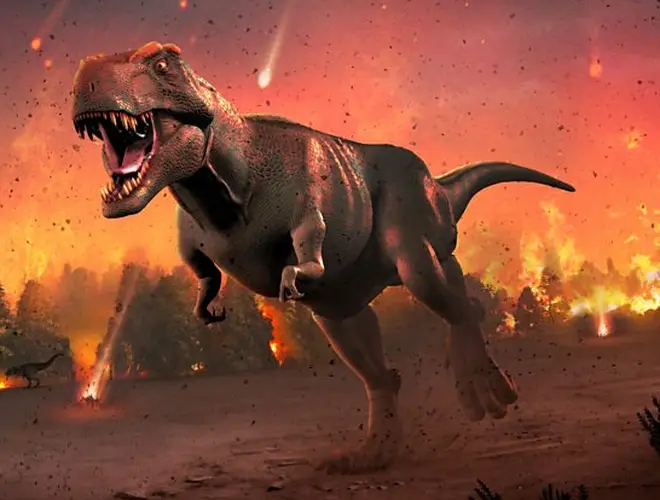
Tonight with Andrew Marr 6pm - 7pm
31 October 2023, 08:39 | Updated: 31 October 2023, 08:49

Scientists announced that it was not the impact of an asteroid that killed off the dinosaurs 66 million years ago.
But debris ejected by the asteroid played a critical role in their extinction.
The asteroid, which hit modern-day Mexico 66 million years ago, caused a global catastrophe, which wiped out three-quarters of the world's species and ended the age of dinosaurs.
Belgian researchers said on Monday that dust from the pulverised rock may have played a larger role than previously thought in driving extinctions by choking the atmosphere and preventing plants from harnessing sunlight.

The team led by the Royal Observatory of Belgium, which determined dust from pulverized rock was thrown into Earth's atmosphere, blocking the sun and hindering the photosynthesis of plants.
New modeling showed the amount of dust was about 2,000 gigatonnes - exceeding 11 times the weight of Mt. Everest - and lingered in the atmosphere for up to 15 years, causing a worldwide nuclear winter.
In the aftermath, Earth experienced a drop in surface temperatures of about 15 degrees Celsius, causing a chain reaction of extinctions. As plants died, herbivores starved, while carnivores were left without prey and perished.
Previous research has highlighted sulphur released after the impact and soot from the wildfires as playing a large role in extinctions.
Study co-author Philippe Claeys said: "It was cold and dark for years."
Fellow researcher, Ozgur Karatekin, added: “Biotic groups that were not adapted to survive dark, cold and food-deprived conditions for almost two years would have experienced massive extinctions.
“Fauna and flora that could enter a dormant phase - for example, through seeds, cysts or hibernation in burrows - and were able to adapt to a generalistic lifestyle - not dependent on one particular food source - generally survived better, like small mammals."
Without this disaster, dinosaurs might still dominate today, researchers said.
“Dinos dominated Earth and were doing just fine when the meteorite hit," Mr Claeys said.
“Without the impact, my guess is that mammals - including us - had little chance to become the dominant organisms on this planet."